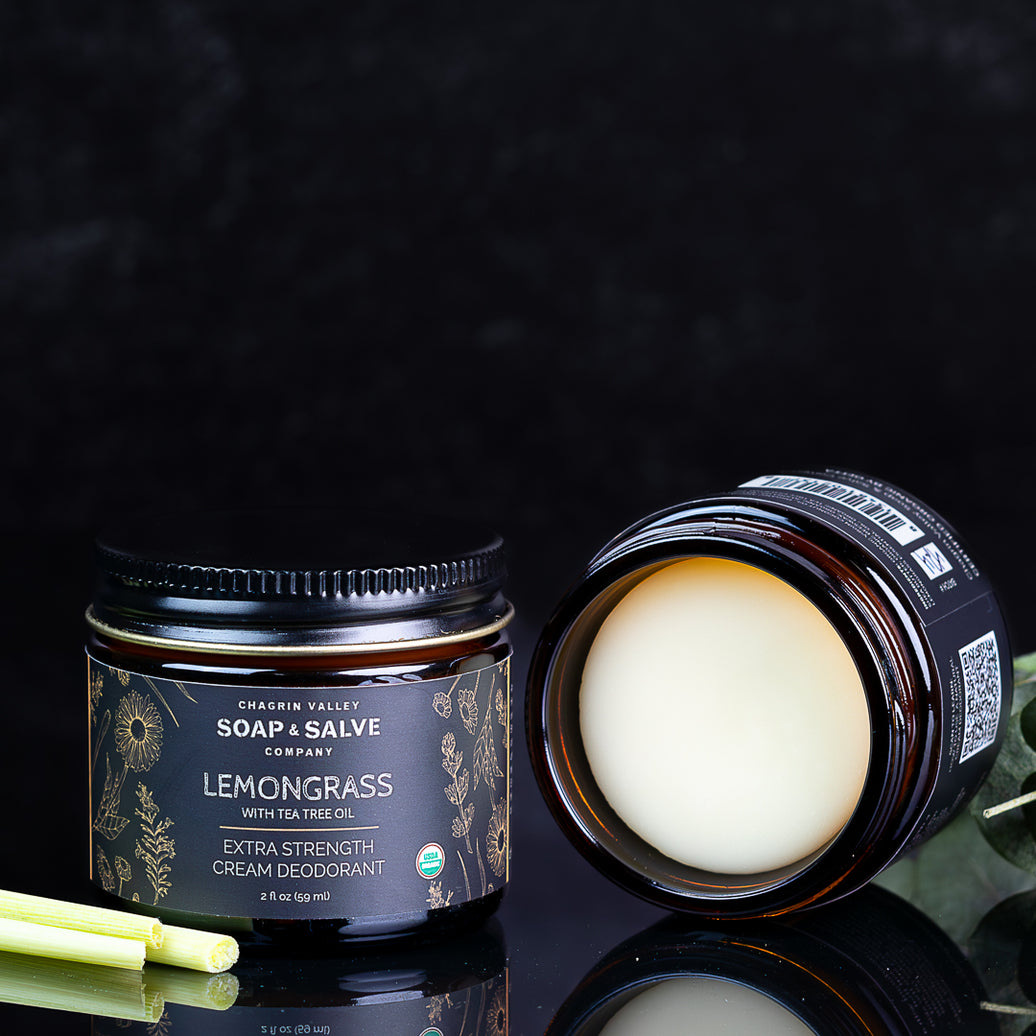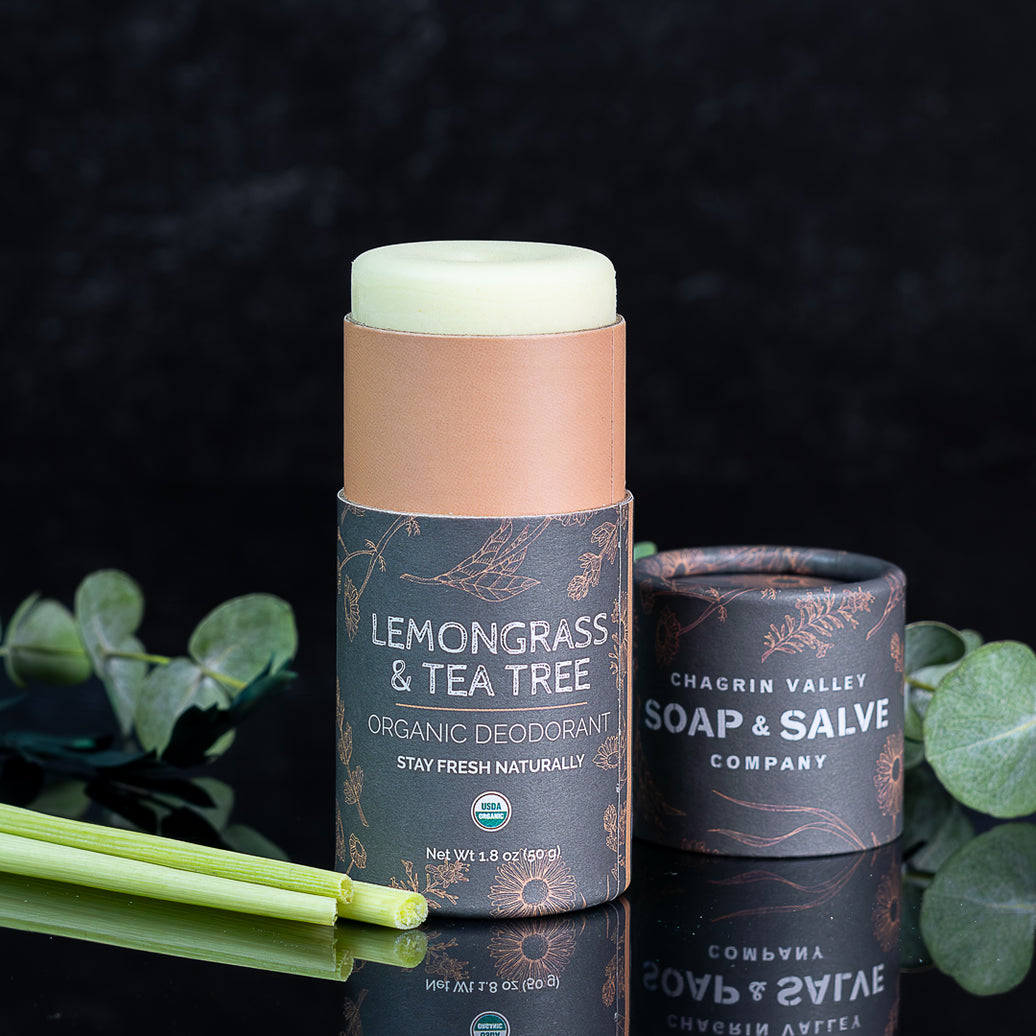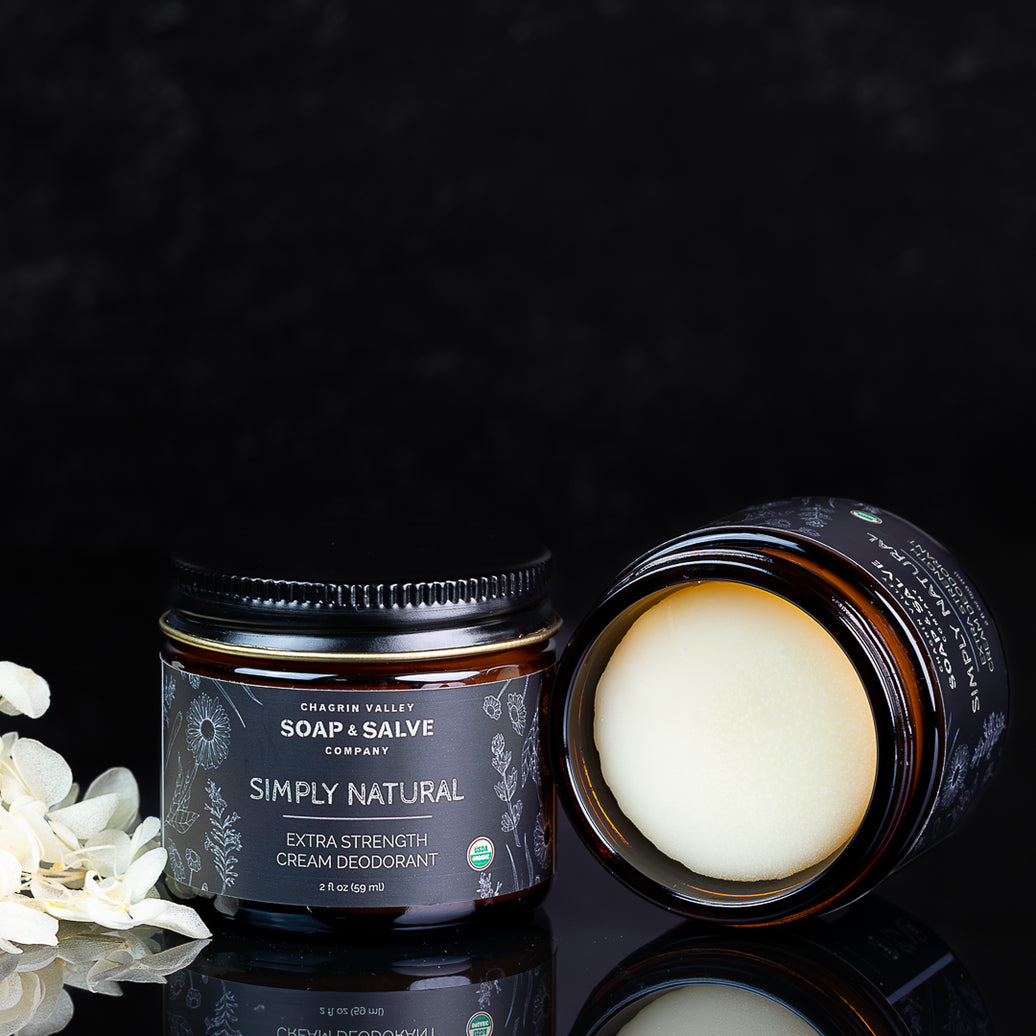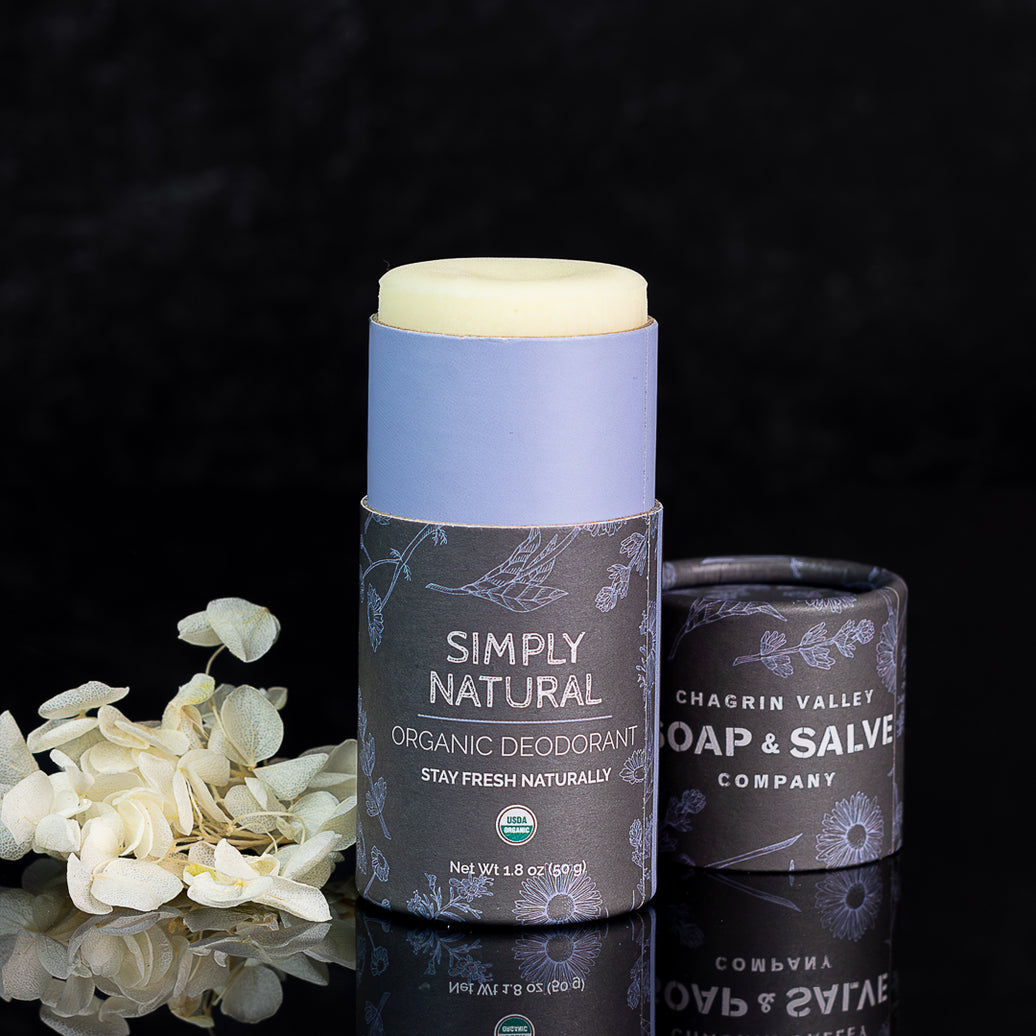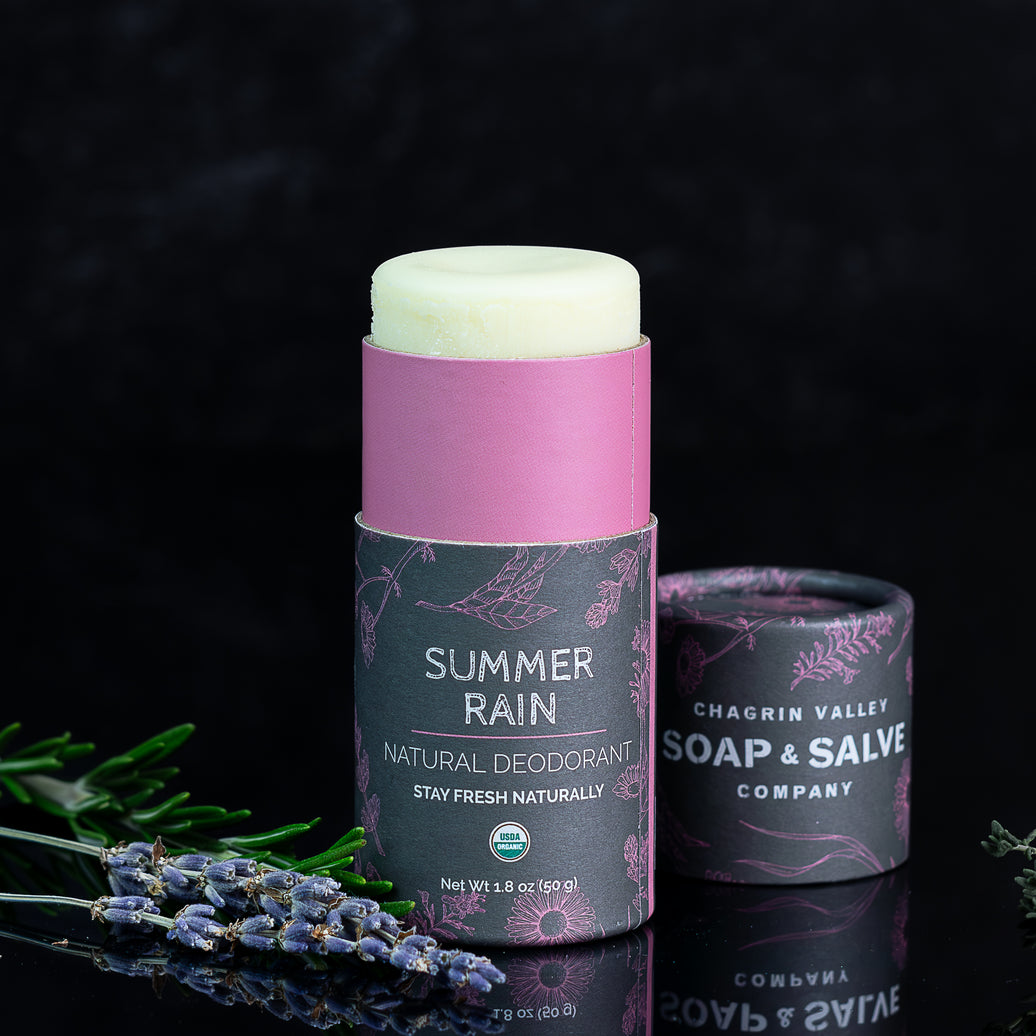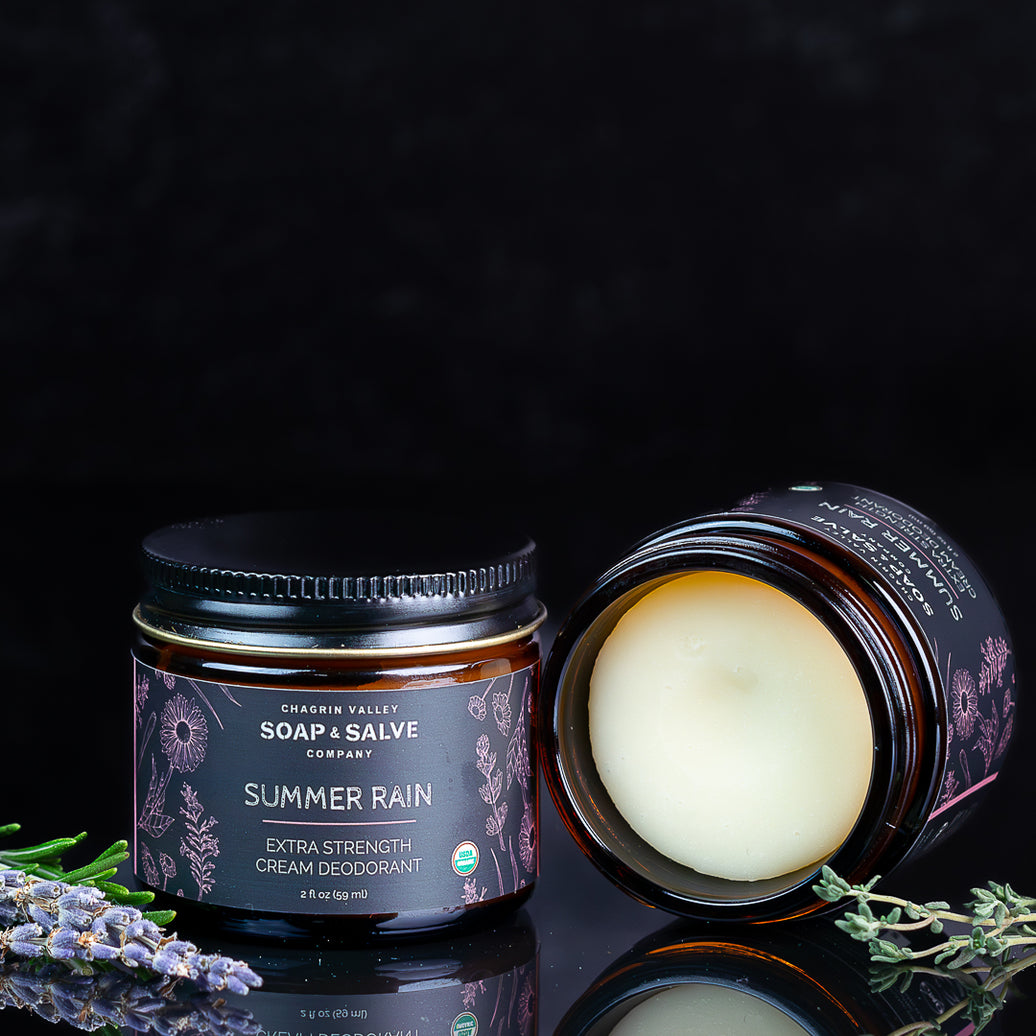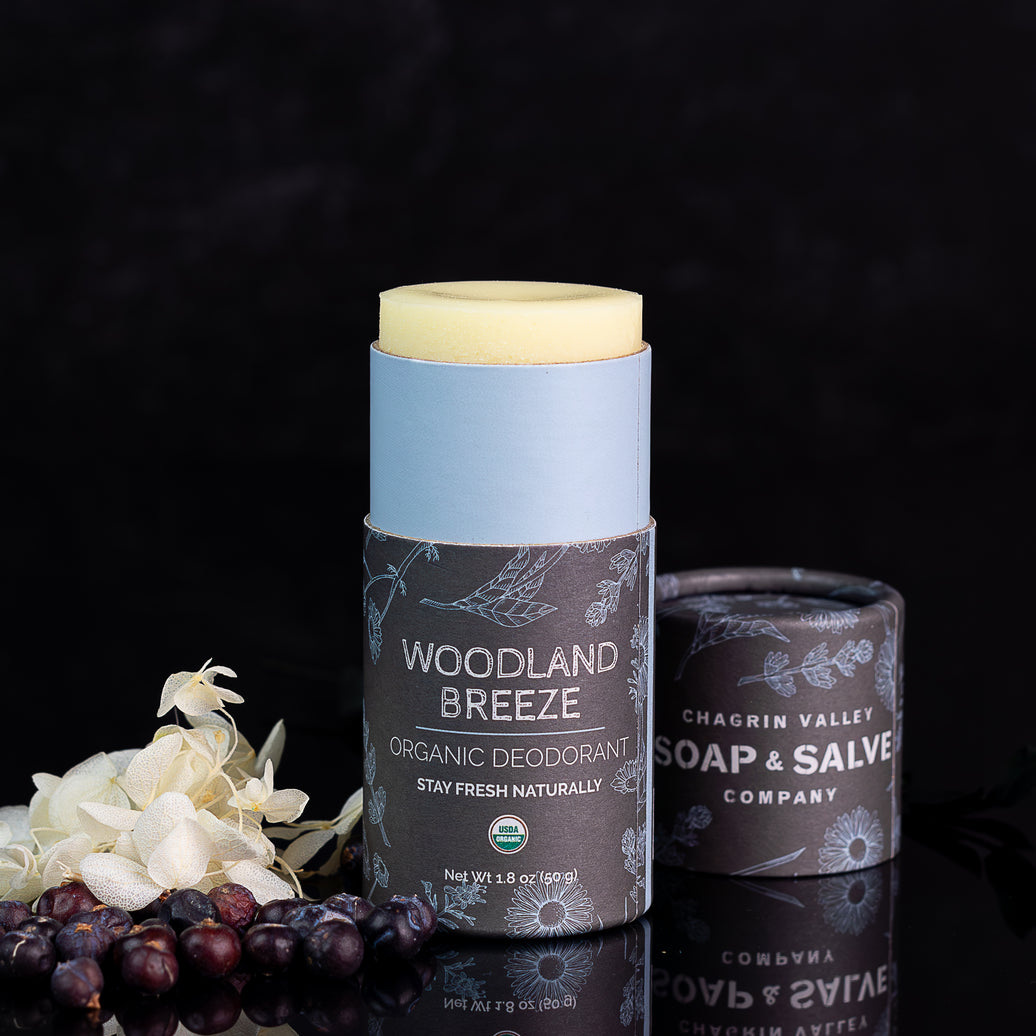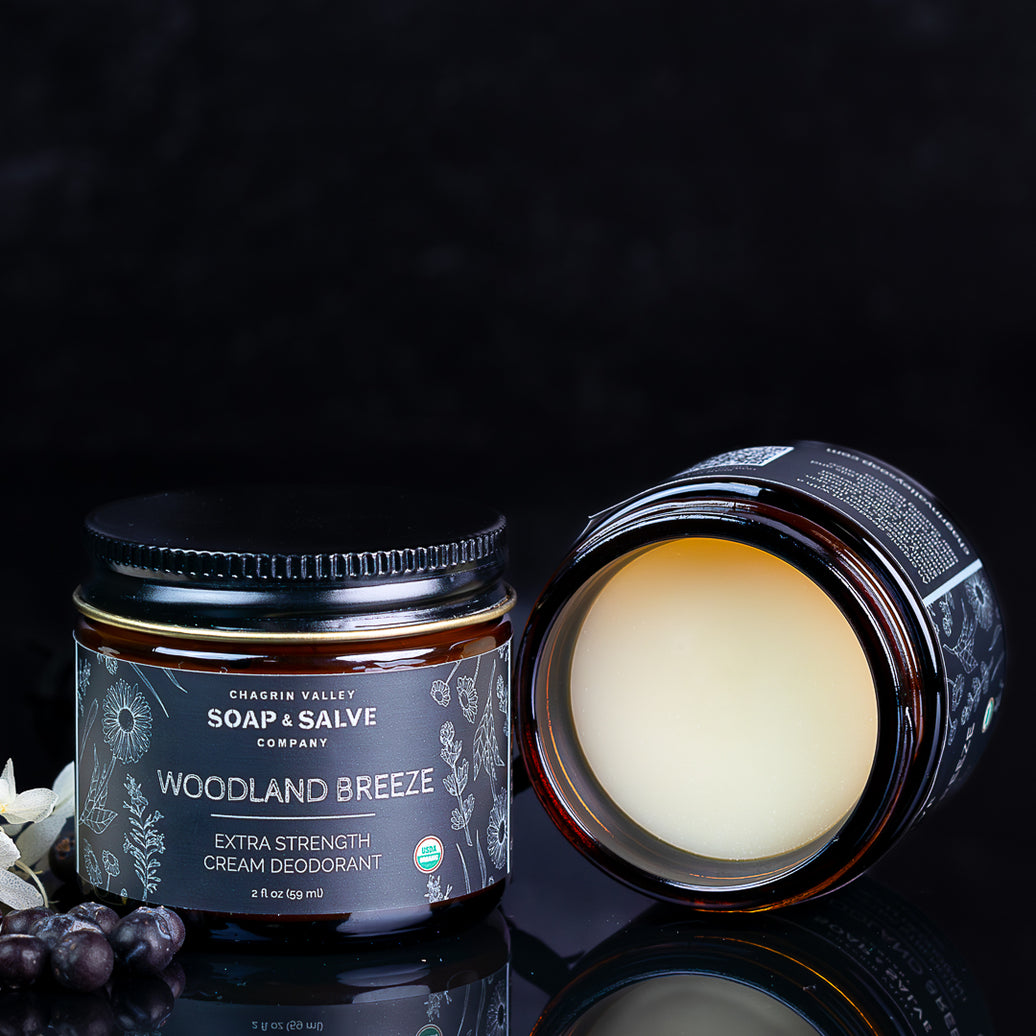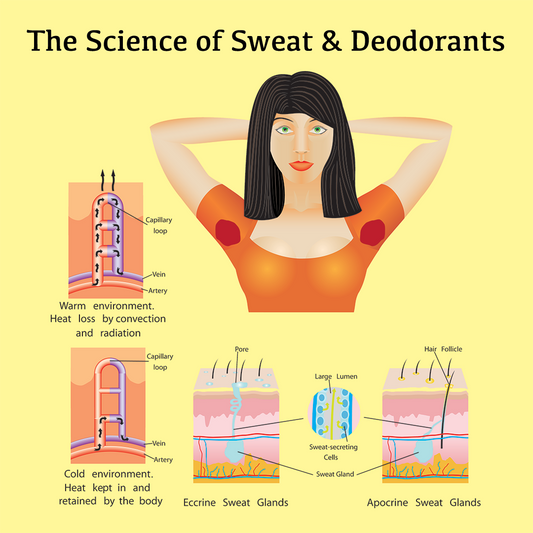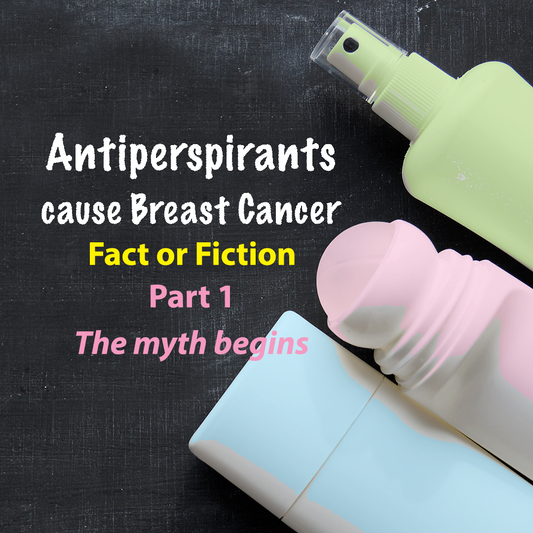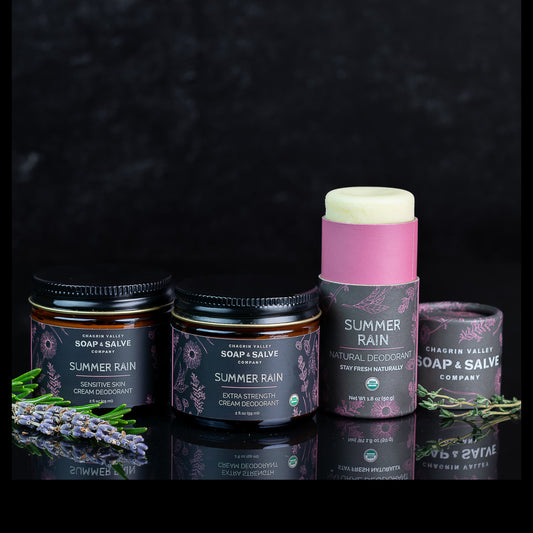Is There Aluminum In My Baking Soda?
 The short answer is . . . NO!
The short answer is . . . NO!
The concern about the presence of "aluminum" in baking soda began when some manufacturers began labeling their baking soda or baking soda products as “aluminum-free.”
Baking soda does not and never has contained aluminum.
Baking soda, also known as sodium bicarbonate, has been around for centuries.
It was first used in the U.S during colonial times when it was imported from England. In 1846, Church & White introduced the most famous brand, Arm & Hammer Baking Soda (it was initially called Cow Brand).
Although it is commonly used as a leavening agent in baking, baking soda can also be used to brush your teeth, deodorize, replace toxic household cleaners, and even clarify hair.
Why The Concern About Aluminum in Baking Soda?
We recently received an email from a customer telling us that while she loves our products, "I will not buy your deodorant because it does not say that the baking soda is aluminum-free.”
I know there are concerns about aluminum in personal care products, but baking soda does not and never has contained aluminum.
As we began getting more and more emails asking about our baking soda, I began to wonder why all of a sudden people were worried about aluminum in baking soda.
It seems that the questioning began when some manufacturers began labeling their baking soda as “aluminum-free.” I guess it makes sense that if one brand of baking soda is “aluminum-free,” then other brands must contain aluminum. However, that is just not true.
Another ingredient commonly used in baking, baking powder, may contain aluminum. This probably added to the confusion. While baking soda and baking powder look similar and have similar names, they are different.
What Is The Difference Between Baking Soda and Baking Powder?
Baking Soda
 Baking soda contains one ingredient, sodium bicarbonate.
Baking soda contains one ingredient, sodium bicarbonate.
Sodium bicarbonate can be mined from natural sources or produced synthetically.
Sodium bicarbonate is a base that reacts when it comes into contact with moisture and acidic ingredients like milk, yogurt, honey, lemon or vinegar. This reaction produces carbon dioxide (CO2) bubbles that create a liquid foam (think of the "volcanoes" you made in school using vinegar and baking soda).
When making baked goods, the process is called "chemical leavening," because instead of yeast, the trapped CO2 gas bubbles expand during baking causing baked goods to rise.
Since baking soda needs an acid, if you try to use it in a recipe without an acidic ingredient, there will be no gas bubbles and no rising.
Another problem with baking soda in baking is that once it comes into contact with an acid, it reacts immediately. An immediate reaction can be a problem because in some recipes you need a longer and slower reaction time so that the rising does not take place all at one time. That is where the baking powder comes into the recipe.
Baking Powder
 Baking powder is made up more than one ingredient. It is made of three parts. All baking powders contain sodium bicarbonate (just like baking soda). But baking powder also contains its own built-in acids and a bit of starch.
Baking powder is made up more than one ingredient. It is made of three parts. All baking powders contain sodium bicarbonate (just like baking soda). But baking powder also contains its own built-in acids and a bit of starch.
Commonly use acids include Sodium Acid Pyrophosphate, Monocalcium Phosphate, Sodium Aluminum Sulfate, or Tartaric Acid (cream of tartar).
Most baking powders are called "double-acting" because they have different ingredients that create CO2 gas at different stages of the baking process. Double-Acting baking powder will react and create gas bubbles twice, once when added to liquid, and again when exposed to heat. When using baking powder, you do not need to add extra acid to get your recipe to rise.
The "double-action" occurs because (1) the dry monocalcium phosphate acid and sodium bicarbonate begins to react when mixed in wet dough or batter, releasing bubbles of CO2 and causing chemical leavening. However, (2) the sodium acid pyrophosphate or sodium aluminum sulfate do not react until they are both wet and exposed to heat.
When purchasing Baking Powder, look for "aluminum-free" brands.
Looking at the ingredients, you can see that poor Baking Soda has received a bad rap because its close friend, Baking Powder, may contain aluminum.
So . . . Does Baking Soda Contain Aluminum? The answer is No!
Baking soda does not and never has contained aluminum. But since some brands of baking powder do contain aluminum, you may want to look for aluminum-free baking powder the next time you shop.
No need to worry! When you try our organic deodorants that contain baking soda, they are definitely aluminum-free!

